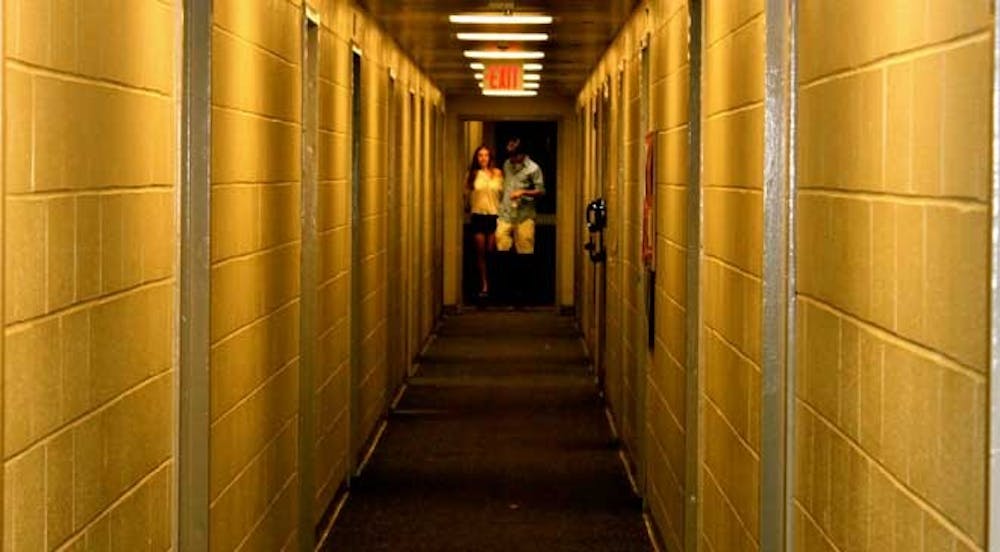Freshman residents of a wing in Marsh Hall’s basement have had to pack up their rooms twice already this year because of mold in the building.
The mold problem began in the fall semester when several students complained to housing about a bad smell in their dorm rooms. After subsequent investigations, the housing department set a plan in action to address the mold and moisture concerns.
University housing and facilities first attempted to resolve the issues in the fall by replacing the carpeted floors of the 17 affected rooms with tile.
According to an email sent to affected residents, the plan involved conducting tests and replacing the furniture and mattresses in each of the rooms along the wing, and displacing the residents in 17 rooms for two days at a time from late October to mid-November.
To some freshmen, the process turned out to be longer and more frustrating than expected.
As each pair of rooms were handled, residents had to pack up all of their belongings in bins provided by the university and move into temporary, four-person housing on the third floor of Marsh, freshman Ed Curry said.
“The given two-day period they told us about turned into four nights of living out of a suitcase,” Curry said. “Towards the end of the semester when work starts to pile up, it was definitely inconvenient, to say the least.”
Despite the efforts made during that period, during which the university carpeted Curry’s room, Curry learned that his hall would have to pack up their rooms again before winter break.
“At this point, come Christmas break, we had now packed and unpacked our rooms, including moving day, three times,” Curry said.
Jack Shapiro, another freshman Marsh resident, was also frustrated with the moving process when students returned after winter break.
“A bunch of kids were missing some of their stuff when we got back,” he said. “My stuff ended up in other peoples' rooms and I had other peoples' stuff in my room. It just wasn’t executed very well.”
Patrick Benner, director of resident life and undergraduate student housing, said they replaced the carpet with tile over winter break “so as to not cause any further displacement for the residents on the floor.”
Enjoy what you're reading?
Signup for our newsletter
Benner said he understood it was not an ideal situation for students. “I was thankful for their patience and understanding throughout the process,” he said. “They were very helpful and flexible to us and the staff.”
Shapiro said he thought the mold was the reason a lot of students got sick during their first semester.
“I know a lot of people were having sinus infections, and a couple kids got pneumonia and a couple doctors that they had gone to were saying that it might be because there was mold in Marsh,” he said.
Curry said the worst part of the process was the lack of assistance from the university.
“It was never made easy for us. It was almost as if we had done this to ourselves and that’s how the university treated us throughout it," Curry said. "It was us against the housing department.”
Beyond the inconvenience of having to pack up their things and move multiple times, Curry said that several of his and his roommate’s belongings were damaged by mold or moving.
“There were some items when the concern was brought to attention early on that required replacement," Benner said. "We worked with the students to get the items replaced or provided reimbursement."
Regardless, Curry was disappointed in the way the university handled the situation.
“I understand that obviously the school didn’t prepare for a mold problem,” Curry said. “But it was just the way that the school handled the situation that was so, kind of, disheartening about how the housing department is run.”
Contact reporter Missy Schrott at missy.schrott@richmond.edu.
Support independent student media
You can make a tax-deductible donation by clicking the button below, which takes you to our secure PayPal account. The page is set up to receive contributions in whatever amount you designate. We look forward to using the money we raise to further our mission of providing honest and accurate information to students, faculty, staff, alumni and others in the general public.
Donate Now



